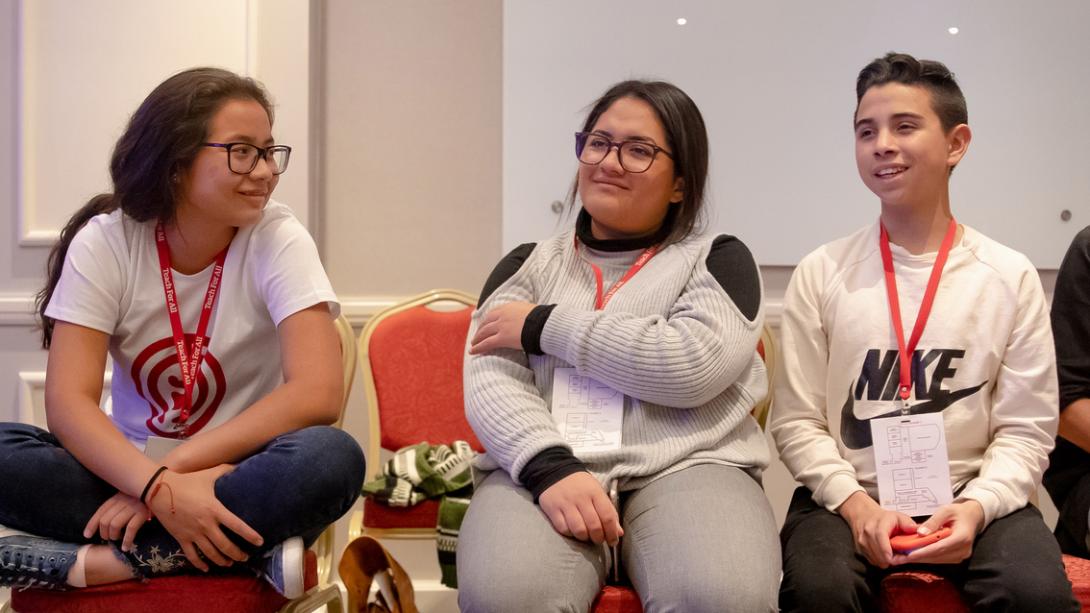In the Loop: Making Student Leadership Tangible

Across the world, we're seeing young people leading the charge in shaping a better future for themselves and their communities. Inspiring young leaders are elevating their voices to protest injustice, founding projects that reimagine education and hosting podcasts to discuss important issues. Educators play a crucial role in helping young people develop this leadership, and one of our priorities across the Teach For All network is exploring how teachers are successfully fostering student leadership and sharing their best practices and insights to support others to do the same.
Teach For All’s Global Learning Lab recently hosted a classroom learning loop on making student leadership tangible, focusing on ways that student leadership can be developed by defining concrete outcomes for students. More than 170 members of the Teach For All network from 45 countries participated in the four-week online learning experience, including educators, program designers, teacher developers, and policymakers.
In the first week, attendees explored examples of student leaders from around the world, including Afsaar from India and students from Chile. They reflected on what student leadership could mean in their contexts, and discussed how the dominant culture in their countries and communities has shaped prevailing views on leadership and young people. A common theme that emerged was the inner work that educators need to do to create space for and empower young people’s voices. “We, the adults of the world must let go of the grip that we want to always have on our students learning,” explained Merlin Valdez, Director of Programs at Teach For America, “and allow them to drive the road to the future, with us as their trustworthy co-pilots.”
In week two, learning loop participants examined several frameworks to explore the links between student outcomes, leadership, and equity, including CASEL, the OECD Learning Compass 2030, Singapore’s 21st century competencies framework, Building Blocks for Learning and Teach For All’s PADA framework. Week three began with a video by Ramabadran Sundaram, Teach For India's Senior Manager for National Alumni Impact, on Why Student Leadership Matters to consider the role that developing leadership in young people plays in creating equity. Attendees also facilitated focus groups with students to understand their thoughts about leadership, agency, and their communities. “I believe that I have the power to bring change in my environment, but I can’t do it alone,” Khairunnisa, a student from Malaysia shared.
During the final week, learning loop participants connected with their peers for discussion groups and to synthesize their learning into next steps. They shared inspiring ideas for putting their learning into practice, including starting teacher support groups exploring student leadership, adapting lesson plans to incorporate student outcomes, and holding more spaces to listen to students. “To make student leadership tangible, we as adults need to learn and develop these mindsets and skills as well,” Teach For Cambodia fellow Sreyleap Taing concluded. “Our students and us need to be constant learners.”
To learn more about student leadership and explore the insights from this learning loop, join the Student Leadership Facebook Group. Upcoming learning loops will be focused on Culturally Sustaining Pedagogy for members of the network in the Europe region (July 13th - 31st).



